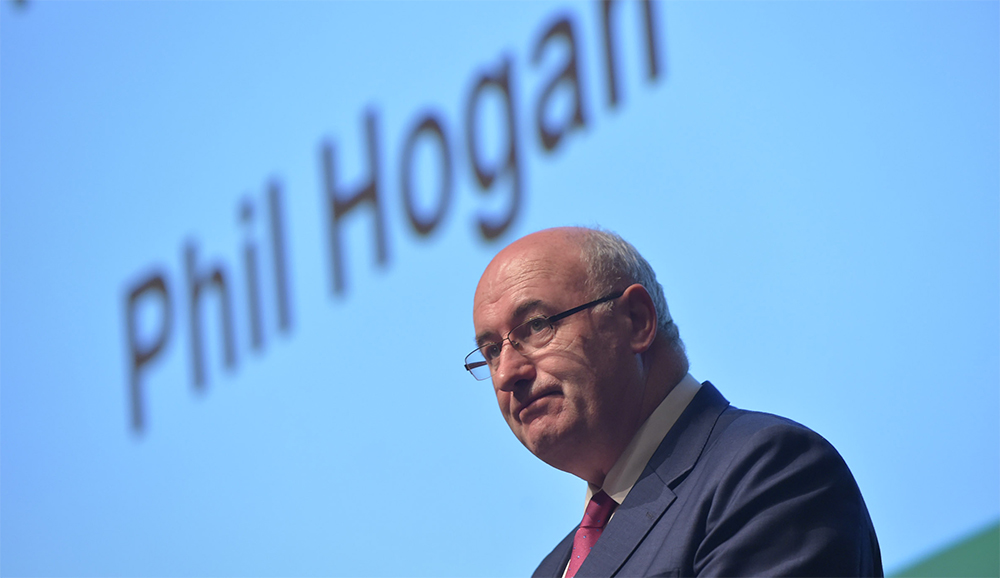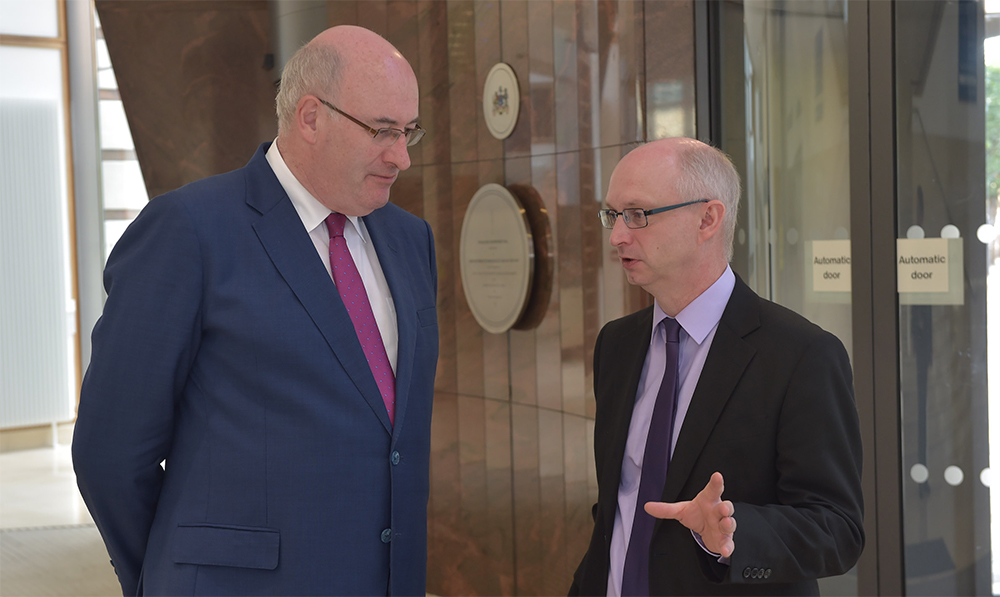
Developments in science, technology and innovation are key to the future of European farming, a major agricultural science conference has heard.
The European Federation of Animal Science (EAAP) conference in Belfast was told that science had a vital role in helping agriculture find ways to produce food more sustainably.
Addressing more than 1500 delegates during the conference’s opening ceremony on Tuesday (30 August), European Agriculture Commissioner Phil Hogan said the agricultural sector needed to become smarter, leaner and cleaner.
“That requires more and better knowledge that allows us to build a more competitive and sustainable food production system, and creates new value chains in rural areas,” he said.
Mr Hogan said that agricultural science had taken a backseat in Europe for a long time, but there was a recognition that research was vital to the industry and that trend had to be reversed.

“These days we expect farmers to do much more than produce food,” he told delegates.
“We expect them to generate jobs and economic growth and contribute to environmental targets. Innovation within the sector is key to helping balance these different priorities.
“As a result of various crises in the EU we have fallen behind our targets and allowed agricultural research to become a lower priority than it should be,” he added.
“But there is a resurgent ambition to change this. We doubled our investment in the field under Horizon 2020 [the EU programme for research and innovation] and we have made research and innovation a central plank of the rural development programme.”
'Concerned about barriers between countries'
Northern Ireland Agriculture Minister Michelle McIlveen said farmers were increasingly looking to science to give them a competitive edge.
“Sustainable food production is vital - particularly here in Northern Ireland where food and farming is worth £5bn to our economy every year,” she told delegates.
"We have to produce food as sustainably as possible, and the adoption of new research and development is a key driver of this.”
Miss McIlveen said Brexit had thrown some uncertainty around science and agriculture, but she was confident the UK would continue to maintain its position of excellence in farming and science.
“We want UK scientists to continue to work with European partners,” she said.
“Exiting the EU will being challenges, but there will be opportunities to work with partners in a new way. I have no doubt that we will continue to work closed with Europe.”
Liam Sinclair, President of EAAP 2016 host organisation the British Society of Animal Science, said governments across the UK needed to make assurances over long-term funding for agricultural research projects.
“We have some fantastic scientists working here in the UK, and we don’t want to see their work being put at risk because of funding issues,” he said.
“We are also concerned about barriers being created between countries,” Professor Sinclair added. “Animal science relies on links between other organisations, but there are concerns other countries are hesitant to collaborate.
“If the UK can’t collaborate them we will lose out on the quality of science, and that will have a huge impact on UK farmers.”
